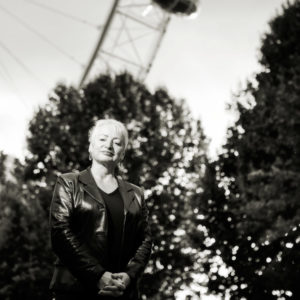What was the first piece of writing advice you received?
I armed myself with How Not to Write a Novel by Newman and Middlemark, which is both hilarious and packed full of tips, and The Art of Writing Fiction a rather more scholarly book by Andrew Cowan.
The first book covers plot, character, style and much more. Each tip is accompanied by bad examples with headings such as ‘The Gum on the Mantelpiece’ where the author makes much play about said-piece of confectionery and then NEVER refers to it again. Anyone else guilty of that? Another of my favourites is a section entitled ‘Said the Fascinating Man” where the author tells the reader what you think of his writing. “Was it a fish?” the girl said eloquently.
The section on what not to name your cat in your story includes:
- after a composer (Bartok, Mahler)
- Mr + adjective + anatomical feature (Mr fluffy paws)
- Magnificat – or similar pun
I think I got away with naming the cat in my book, The Creatures of Chichester – The One About The Smelly Ghosts. I decided on Purrcasso as she lives at the art gallery. What do you think? Did it stray into Magnificat territory?
Mr Cowan’s book is more learned with lots of writing exercises he used with his students at UEA, I believe. These include exercises on creating great dialogue, using all the senses and many more. I created a special notebook to do them all. It’s mostly still empty but – one day.
What was the most recent writing advice you gave or received?
Sometimes it really is okay to tell not show. Every course I’ve ever attended and blog you read talk about showing not telling. It can become obsessive. At some point, it’s better to just say: ‘it’s midnight’ rather than: ‘Bats passed silently by the ancient metal hands of the church clock as they moved into a vertical position.’ This is particularly true in children’s books where most kids want action. I am, however, a fan of using show not tell in dialogue though. Better to write His clenched fist was inches from her face, “I Hate you!” said Bob then “I hate you,” said Bob angrily. In fact, part of my editing process is to remove as many adverbs as I can.
What’s the piece of advice you’d most like to pass on?
Once you’ve written and edited your work get in proofread by a professional. This is not your sister, who is an English graduate; not your neighbour, who studied law and is very bright and NEVER yourself. It’s impossible. I would add that Grammarly is great at picking up many obvious errors, and it’s free too.
If you can afford an editor then this will also make a huge difference. There are lots of good books and courses on this but, like the proofreading tip above, it’s very hard to do this objectively yourself. reedsy.com is a great source of advice on what you need to consider and also provide experts who can do this for you.
Finally, if you decide to self-publish (as Mark Twain and the Bronte sisters did) then pay for a professional cover designer. If you’ve taken a year or more to write the best book you can, then surely this must be worth it? There are also lots of good books and webinars on this but it’s like me downloading a book on how to play the violin. All the information is there, but I can assure you that my mother would testify that even though I passed grade 1 at junior school, it does not make me a member of the orchestra. If you’re a good writer then write. Leave the editing, proofreading and cover design to somebody else.
Christopher Joyce has written six books in The Creatures of Chichester series and produced The Alien Cookbook with out-of-this-world recipes for kids of all ages. He also promotes self-publishing through CHINDI a group of independent authors in the UK. www.creaturesofchichester.com. www.chindi-authors.co.uk


